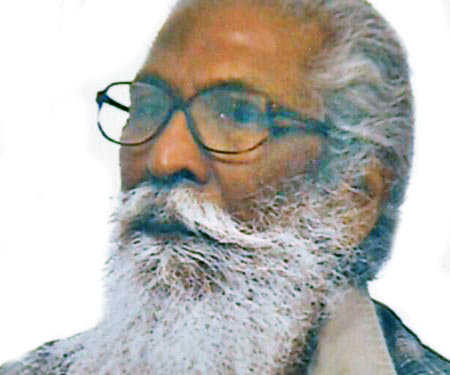CALL FOR PAPERS
Theme: Post Indentureship Movements and Trends
Date: May 29 to June 01, 2020
Venue: National Council of Indian Culture, Trinidad
The National Council of Indian Culture (Trinidad and Tobago) in collaboration with UNESCO Indentured Labour Route Project and the Department of History, UWI, St. Augustine invite you to submit papers for a conference in commemoration of the formal abolition of the Indian Indentureship system (1920), to be held in Trinidad, from May 29 to June 01, 2020.
BACKGROUND
In 1917, the Viceroy of India, announced that the further recruitment and transportation of Indian labourers under the indentureship was prohibited and no more labourers would be taken to the various colonies to work as contracted labourers. A few years later, on January 01, 1920 all contractual obligations of all labourers were terminated and the Indian indentureship system was abolished in Jamaica, Trinidad, British Guiana (Guyana) and Fiji. This conference examines movements and trends in the post-indentureship period.
When indentureship ended those Indian labourers who chose to stay in the countries where they were indentured, were then compelled to find ways to establish themselves in the society as non-contract labourers. To some extent they were forced to adopt these societies as their homes. They were left to find educational opportunities for themselves and to establish political alliances. They engaged in economic competition with other ethnic groups in the society and underwent a process of socio-cultural rejuvenation all in the interest of self-preservation. They made these countries their homes and they contributed in all aspects, to their development. This conference focuses on the economic, socio-cultural and political contribution and development in post-indentured societies.
OBJECTIVES
The objectives of the conference are:
• To present opportunities for diasporic researchers and scholars to engage in global dialogue.
• To advance the achievement of a progressive Indian diasporic world commu nity through collaboration and dialogue on various issues through the ex change of ideas, concerns, solutions, problems, person-to-person contacts
and professional relationships.
• To provide a forum for constructive international dialogue among diasporic scholars/researchers.
• To provide opportunities for scholars and researchers to interact and share major concerns with each other while discussing matters relating to their respective communities.
• To encourage inquiry by diasporic scholars, researchers and others into the challenges and practical possibilities for the Indian Diaspora in charting and sharing a common future.
• To focus new research on the post-indentureship/ post-20th century period as well as on contemporary trends.
TOPICS
The topics of the conference theme and areas of discussions listed are not conclusive. Additional ideas may be added as long as they relate to the theme of the conference.
1. Historical Perspectives - historical experiences that have shaped the Indian character since the end of indentureship.
2. The Emergence of multi-ethnic Nations and Societies – interaction with other ethnic groups, challenges and ethnic negotiations.
3. Emergence and Consolidation of Identities – multiple identities, ethnic identities, cross-cultural identities, contributions of gender, class, caste,
religion, politics and race to the identity formation.
4. Labour in the Indian Diaspora.
5. Gender Issues – emergence of gendered identities, changes in gender roles, gender inequalities.
6. Diasporic Youths – changing identities, shifting trends and roles, inter-
generational interaction.
7. Diasporic Heritage, Culture and Archives – literature, film, art, media, etc.
8. Technology and Entrepreneurship – global linkages, economic dominance/ consolidation, Diasporic transfers.
9. Future Trends – projections/ future developments in political, economic, socio- cultural areas, identity formation, global networks.
10. Ecology and the Environment.
11. Diasporic Biographies and Publications.
12. Sports, Performative and Visual Arts – craft, pottery, sound, music, dance, photography, festivals and ritual.
13. Politics in the Indian Diaspora.
The conference will be in English. Presentations will be 20 minutes (maximum) and panels will comprise up to four presentations. Abstracts (250 words) and a short Bio (2 paragraphs) must be submitted by 15 October 2019.
POSTER PRESENTATIONS
A dedicated area will be established for the display of posters illustrating research outcomes and describing ongoing work and projects. Posters may include photographs, statistical tables, figures, charts, or other graphic material. Mounting boards will be provided by the conference organizers. Mounting materials required as well as audio-visual equipment are the presenter’s responsibility and will not be provided by the conference. Presenters are responsible for producing their actual poster and visual materials that comprise the presentation, specialized mounting materials and printing of any handouts. Posters should be in portrait or landscape style to a maximum height of four feet (48 in) and maximum width of three feet (36 in). A summary of the poster presentation, no more than 2,000 words must be submitted by 15 October 2019.
YOUTH PRESENTATIONS
An entire session (Friday May 29, 2020, 1:00 p.m. to 6:00 p.m.) has been designated for presentations by youths from throughout the Indian Diaspora on any topic of choice relating to the theme of the conference. In addition, youths are also invited to participate in a roundtable discussion on “Youth Aspirations in the Diaspora” on the same day. Youths wishing to participate in the roundtable discussions are asked to indicate this to the organizing committee.
IMPORTANT DATES
• Submission of Paper Abstracts 15 October 2019
• Acceptance of Paper 1 November 2019
• Full paper submission 15 March 2020
SUBMIT ABSTRACTS
On the Conference Website: widc2020.com
Or via email to: info@widc2020.com; Tel: 1-868-470-0133
Primnath Gooptar (Ph.D.), Chairman, World Indian Diaspora Conference 2020
There is no registration fee for paper presenters for the conference. Presenters would be expected to fund their own travel and local accommodation to the conference. Arrangements are being made for discounted rates at hotels for presenters and delegates. A general cost is as follows:
Guest Houses – 25 USD to 60 USD; 3* Hotels – 100 USD; Hotels – 100+ USD
Links to general information on Trinidad and Tobago
https://www.gotrinidadandtobago.com/
http://www.tourism.gov.tt/
https://www.discovertnt.com/
PARTNERING ORGANIZATIONS
NCIC, UWI and Indentured Labour Route Project (Trinidad Chapter)
The National Council for Indian Culture (NCIC)] was established in 1964. It is the main Indian diasporic cultural organization in Trinidad. It has hosted several cultural missions and artistes from India and elsewhere. It organizes several annual projects to commemorate important dates on the Indian cultural calendar, with Divali Nagar being its flagship event.
In 1960 The UWI’s second campus at St. Augustine was established out of a merger between the University College and the Imperial College of Tropical Agriculture (IATA) in the island of Trinidad. The two-campus College remained affiliated with the University of London until 1962 when it became The University of the West Indies. The UWI, St. Augustine campus has had a long tenure of research on diasporic migrations. Since 1975 the UWI has hosted several Indian Diaspora conferences culminating in 2015 with The Indian Diaspora: Identities, Trajectories and Transnationalities
The UNESCO Indentured Labour Route Project focuses on indentured labourers and their descendants in over 40 countries and territories from the Indian Ocean Islands to the Caribbean, from 1820 to 1940. It aims to create an itinerary of heritage sites including museums, archaeological sites, historic buildings and other places around the world as well as a network of professionals in various disciplines related to Indentured Labour.

